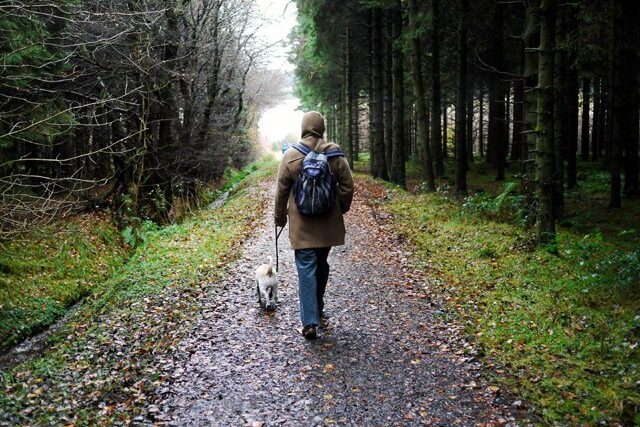
According to a recent analysis, prescriptions encouraging people to spend more time in nature have been found to have positive effects on blood pressure reduction and improvements in symptoms of anxiety and depression.
These nature-based social prescription programs, commonly referred to as “green prescriptions” or “blue prescriptions,” are often recommended by doctors, advising patients to engage with green spaces or bodies of water.
Australian researchers conducted a comprehensive review of existing studies on the impacts and effectiveness of nature prescribing in various countries. They examined 92 studies in which participants engaged with nature in different capacities. The most commonly recommended activities were walking in nature (46% of programs), farming or gardening (29%), and mindfulness exercises (29%).
The prescribed settings for these activities varied, with forests and nature reserves (35% of prescriptions), parks (28%), and community or home gardens (16%) being the most frequent choices. Analysing data from 28 studies that measured similar outcomes, a meta-analysis revealed that nature prescriptions were associated with better blood pressure control, improved symptoms of anxiety and depression, and an increase in participants’ average daily step counts.
Professor Thomas Astell-Burt, a population health expert at the University of Wollongong and co-leader of the research, emphasised the interconnectedness of these improvements. Spending time in a green space through activities like walking not only enhances physical fitness but also positively impacts mental health, reducing loneliness, improving sleep, and potentially lowering blood pressure. These outcomes are intertwined, making nature prescriptions beneficial for both mental and physical well-being.
The review found that one-fifth of all the programs analysed were administered in South Korea, followed by the United States (17%) and Japan (11%). However, the researchers acknowledged that the analysed research had a “moderate to high risk of bias” due to challenges in designing blinded studies in this area. It is difficult to conceal from participants whether they are in the intervention or control group when the intervention involves spending time outdoors in a park and the control group is instructed not to do so.
Co-lead researcher Professor Xiaoqi Feng from the University of New South Wales School of Population Health emphasised the need for more randomised controlled trials to determine the long-term effectiveness and cost-effectiveness of nature prescriptions and to identify which types of prescriptions work for different individuals.
Building on their research, Astell-Burt and Feng secured $1.5 million in funding through the Medical Research Future Fund to conduct a trial testing the effectiveness of nature prescriptions in Australians aged 45 and older. The research team is collaborating with consumers, healthcare providers, and nature professionals to design the trial, ensuring that when the results are obtained, they are well-positioned to implement nationwide programs.
Although nature prescriptions are not yet widespread in Australia, previous research involving nearly 47,000 Australians has demonstrated that a 30% green space or tree canopy cover in urban areas is beneficial to health, reducing the likelihood of experiencing diabetes and psychological distress.
The findings of this study were published in the Lancet Planetary Health journal, highlighting the growing recognition of the positive impacts of nature on human health and well-being. By harnessing the healing power of nature and integrating it into healthcare practices, society can potentially unlock significant benefits for individuals and communities.
——————————————————————————
At Natural World Fund, we are passionate about stopping the decline in our wildlife.
The declines in our wildlife is shocking and frightening. Without much more support, many of the animals we know and love will continue in their declines towards extinction.
When you help to restore a patch of degraded land through rewilding to forests, meadows, or wetlands, you have a massive impact on the biodiversity at a local level. You give animals a home and food that they otherwise would not have had, and it has a positive snowball effect for the food chain.
We are convinced that this is much better for the UK than growing lots of fast-growing coniferous trees, solely to remove carbon, that don’t actually help our animals to thrive.
This is why we stand for restoring nature in the UK through responsible rewilding. For us, it is the right thing to do. Let’s do what’s right for nature!
Support our work today at https://naturalworldfund.com/ and join in the solution!

